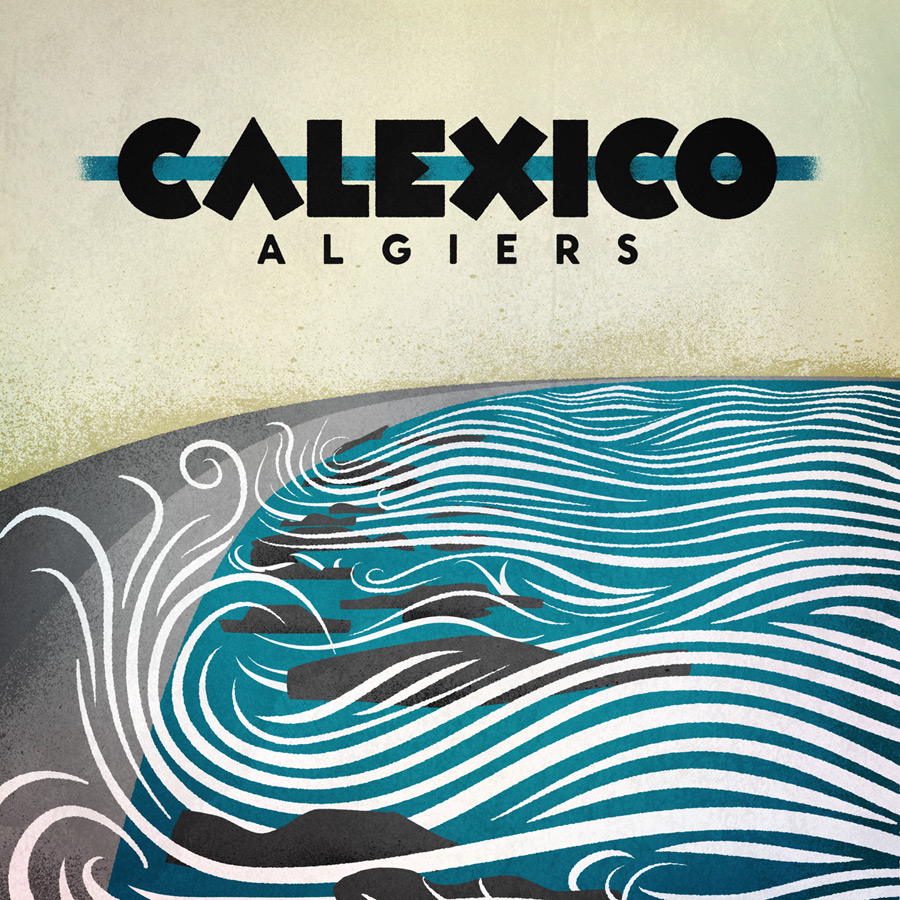Algiers is Calexico’s seventh album, and despite the four year break since their last non-soundtrack work, Carried To Dust, you can be fairly confident that you know what you’re going to get when heading into it: guitar-driven Americana, Spanish-inflections, simple song structures, and, most importantly, very fine song wiritng. Despite the break, the change of label, and the decision to uproot to New Orleans to record the album, Calexico sound more comfortable than ever on Algiers, continuing the more direct approach that began with 2006’s Garden Ruin.
The album’s opening trio of songs each simper hazily in and out of existence in a matter of minutes, seemingly tossed off casually by the band. Joey Burns’ vocal matches the mid-level tempo of the songs and whenever he desires to put more emphasis on certain lines he knows his band will be there to back him up with a little more urgency in the percussion or a timely injection of brass. On third track, “Sinner in the Sea,” what at first seems like a simple slinky number delicately laced with a simple piano melody and undercurrents of brass takes a sharp turn from the clean sailing guitars into a more tumultuous and haunting passage that features stabbing organ and a discernible warble to Burns’ voice as he sings “someone lost an eye, someone lost the truth…” proving that when Calexico want to turn up the drama they’re still as capable as ever.
The rest of Algiers continues in much the same form. Amongst the delightful instrumental title track and pleasant throw-aways like “Fortune Teller” and “Hush,” Calexico show their potency. The unassuming rolling drums and atmospheric guitars of “Para” perfectly encapsulate Burns’ telling of an intimate tale of dysfunctional lovers, before the rising tension in all instruments present, brings about a dramatic and tense brass-injected chorus. Burns opens up “Maybe on Monday” with the nonchalantly casual admission “woke up on Monday, wrote you a love song,” and the band sounds looser, matching his relaxed demeanor, only for the song to spin on a dime after Burns threateningly intones “say goodbye to your love” in the first chorus. By this point the band’s instruments seem to have grown fangs, taking the track on a new and more threatening path, resulting in an unforgettable song.
This continuous give and take between tension and beauty is what gives Algiers a lot of charm. It may not have some of the more epic or experimental elements with which they would pepper their earlier albums, but when the songwriting is as good as it is on the majority of those songs, extra trickery is not necessarily needed. The band has released countless amounts of material over the sixteen years they’ve been together, and it can be taken as a given that any longstanding fans will immediately enjoy Algiers, but for newcomers, this is also a perfect access point to what is one of the most consistent bands of the 2000s.

